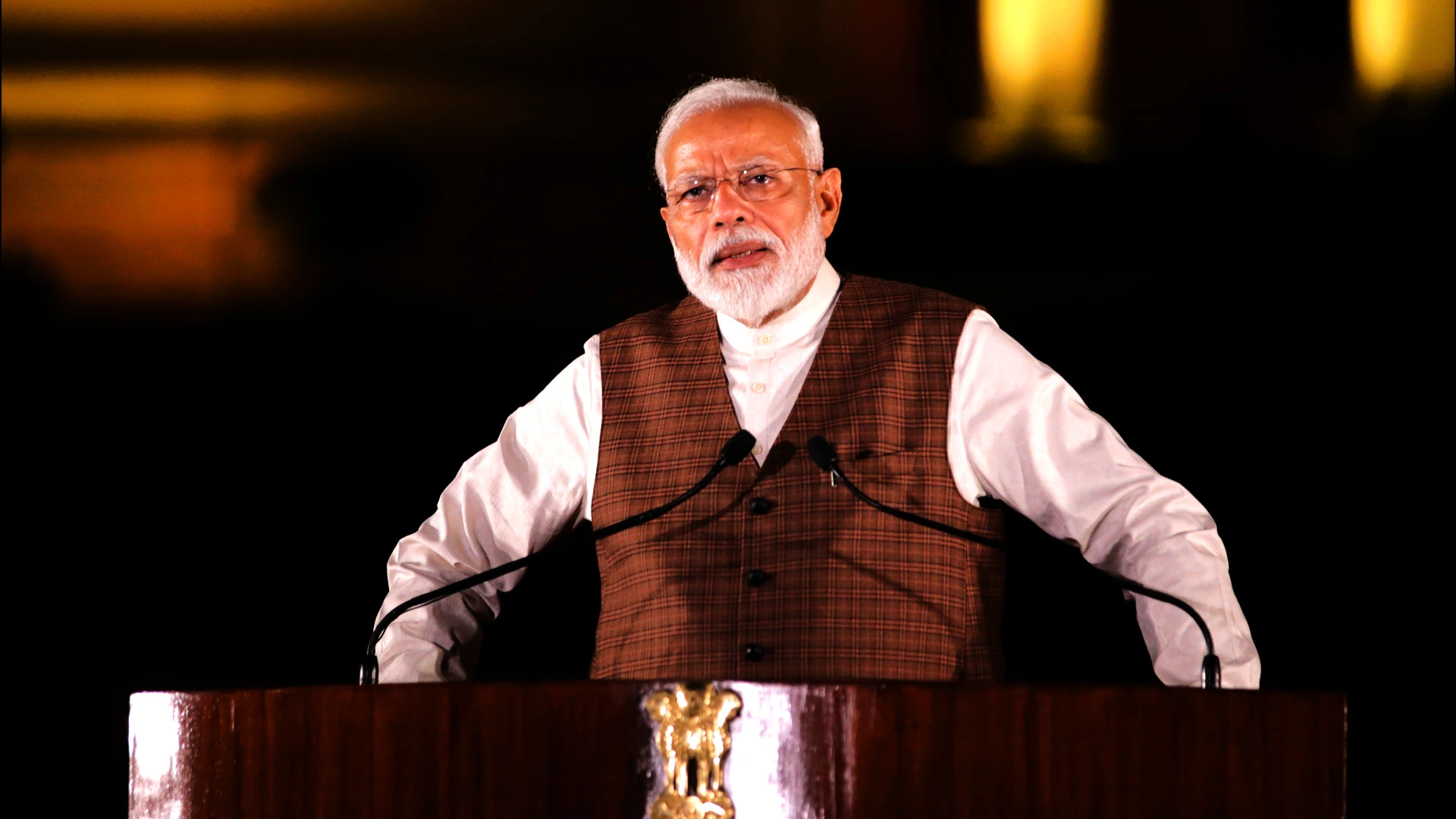Students were detained in India as they prepared to watch a BBC documentary on Narendra Modi. The Students’ Federation of India (SFI) has announced its intention to screen the film across the country.

NEW DELHI: On Wednesday, Delhi police detained students who had gathered to watch a recent BBC documentary about Prime Minister Narendra Modi, which India has deemed to be propaganda and thus blocked its streaming and sharing on social media.
This comes as his opponents raise questions of government censorship following similar disruptions, some of which turned violent, at student gatherings this week to watch the documentary that questions Modi’s leadership during deadly riots two decades ago.
While serving as chief minister of Gujarat in February 2002, when a suspected Muslim mob set fire to a train carrying Hindu pilgrims, triggering one of independent India’s worst outbreaks of religious bloodshed, Modi, who is seeking a third term in elections next year, was in office.
At least one thousand people, predominantly Muslims, were killed in reprisal attacks across the state as mobs rampaged for days, spitting blood and hurling rocks. The number of casualties, according to activists, is closer to 2,500.
Modi has denied allegations that he did not do enough to stop the riots, and a Supreme Court-supervised investigation cleared him of wrongdoing in 2012. Last year, a petition challenging his innocence was shot down.
The government has blocked the sharing of any clips from the BBC documentary “India: The Modi Question,” which was released last week, on social media, calling it a biassed “propaganda piece.”
On Wednesday, the Students’ Federation of India (SFI) announced its intention to screen the documentary throughout the entire country of India.
Mayukh Biswas, general secretary of the SFI (the student wing of the Communist Party of India), said, “They won’t stop the voice of dissent” (Marxist).
Thirteen students were detained as police were heavily deployed near the Jamia Millia Islamia university in Delhi, where one of these screenings was scheduled. Police reported that university officials claimed the students were to blame for the “ruckus on the street” because they were not granted permission to host the concert.
Vice Chancellor Najma Akhtar told Reuters, “There is no probability that anyone who tries to interrupt the discipline of the college will go free.”
Students at Delhi’s Jawaharlal Nehru University claimed they were attacked the day before with bricks when they tried to watch the documentary. The attackers were allegedly members of a right-wing group.
Approximately half an hour before the screening, the power went out, so student leader Aishe Ghosh said they watched the documentary on their phones and laptops.
The school forbade the screening, which threatened students with punishment if the story was shown.
After the power was turned off, Ghosh blamed the administration. As a form of protest against this censorship, we are calling on universities all over the country to screen the film.
When asked for comment on the campus-wide blackout, the university’s media coordinator remained silent.
The student group on the right did not respond to a request for comment. When asked about it, a police officer refused to comment.
Local media reports that the film sparked protests at colleges and universities in the southern state of Kerala on Tuesday and that screening was abruptly canceled in the northern city of Chandigarh.
On Saturday, upper house member Derek O’Brien tweeted that the opposition “will continue to fight a good fight against censorship” in response to the ban on social media sharing of clips from the documentary.
According to the BBC, the documentary series will investigate Modi’s political stances in light of the ongoing conflict between India’s Hindu majority and Muslim minority.
The BBC claimed that the “highest editorial standards” were used in making the documentary.
The BBC claimed that it sought out “a wide range of voices, witnesses, and experts” and featured differing perspectives, including those of members of Modi’s Hindu nationalist Bharatiya Janata Party.